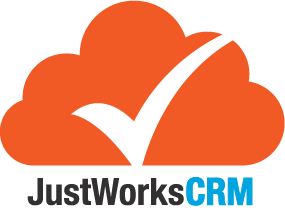JustWorksCRM >>> ON what technology does a small start-up need to help them scale fast.
- Simon Wilcox

- Nov 2, 2024
- 7 min read
For a small startup looking to scale quickly, focusing on technology that enhances productivity, collaboration, and data-driven decision-making can make a big difference. Here are some essential tools and technologies:
1. Customer Relationship Management (CRM) System
A CRM tool, like HubSpot, Salesforce, or JustworksCRM, helps manage interactions with customers, streamline sales, and improve customer support.
It allows you to track leads, automate follow-ups, and provide a central location for customer data, which is crucial as you grow.
2. Project Management Software
Tools like Trello, Asana, or Monday.com help manage projects, assign tasks, and keep track of deadlines.
This software is essential for keeping a growing team on the same page and ensuring accountability.
3. Scalable Cloud Infrastructure
Cloud providers like AWS, Google Cloud, or Azure offer scalable storage, computing power, and security. These services let you start small and expand as needed.
Cloud infrastructure supports web apps, databases, analytics, and other online tools without significant upfront hardware costs.
4. Accounting and Financial Software
QuickBooks, Xero, or FreshBooks help manage expenses, track cash flow, and ensure tax compliance.
Many of these tools integrate with your bank and other software to automate invoicing, payroll, and reporting as you grow.
5. Collaboration and Communication Tools
Slack, Microsoft Teams, and Google Workspace offer real-time communication, file sharing, and document collaboration.
These tools improve teamwork and reduce dependency on lengthy email chains, keeping everyone aligned as the team expands.
6. Marketing Automation Tools
Platforms like Mailchimp, HubSpot, or MailGun automate email marketing, social media posting, and ad campaigns.
They help nurture leads, re-engage customers, and measure the effectiveness of campaigns, which is critical for scaling your marketing efforts.
7. Analytics and Business Intelligence (BI) Tools
Tools like Google Analytics, Mixpanel, and Power BI help you understand customer behaviour, website performance, and financial metrics.
Data-driven insights enable faster, more informed decisions on what’s working well and where improvements are needed.
8. Cybersecurity Measures
Startups are increasingly targeted for cyberattacks, so investing in basic security tools is essential. VPNs, endpoint protection, and password managers (e.g., LastPass or 1Password) protect your data and assets.
Setting up secure access, encrypting sensitive data, and implementing firewalls can safeguard the business from potential threats.
9. Human Resource Management System (HRMS)
Tools like BambooHR, Gusto, help manage employee onboarding, benefits, and payroll, which are increasingly important as you scale your team.
Starting with essential tools and expanding them as needed allows a small startup to scale efficiently without getting bogged down by costly, complex systems. Integrating these tools where possible can also save time and reduce errors, creating a streamlined tech ecosystem that grows with the business.
Professional Services
Q. What professional skills does a small start-up need to help them scale fast
For a small startup aiming to scale quickly, a diverse set of professional skills can make all the difference in setting a strong foundation and facilitating growth. Here are some key skills that are particularly valuable:
1. Strategic Planning and Business Development
Someone with a knack for strategic planning and business development can help identify market opportunities, set growth goals, and develop strategies to capture market share.
This role also includes evaluating potential partnerships, establishing a competitive edge, and scaling in a sustainable, structured way.
2. Sales and Relationship Management
Effective sales skills are essential to drive revenue growth, especially in the early stages. Skills in prospecting, closing deals, and building customer relationships are crucial.
For scaling, it's beneficial to have someone who can set up repeatable, scalable sales processes.
3. Financial Management and Accounting
A solid understanding of financial management helps with budgeting, forecasting, and ensuring cash flow stability, which is essential when scaling.
Skills in accounting and financial analysis also aid in identifying areas to cut costs, allocate resources efficiently, and secure funding if needed.
4. Marketing and Digital Advertising
Knowledge of branding, SEO, social media marketing, and paid advertising helps increase visibility and attract new customers.
Skills in content creation, analytics, and growth hacking are also advantageous, enabling the startup to expand its reach without necessarily increasing costs.
5. Product Development and Management
Product development skills, particularly in customer-focused design and agile methodologies, help bring ideas to market quickly and ensure they align with user needs.
Skills in product management can help streamline processes, prioritize features, and continually refine the product based on user feedback.
6. Project Management and Operational Efficiency
Project management skills, such as knowledge of agile and lean methodologies, are critical for keeping projects on time and within budget.
Someone skilled in operations can identify bottlenecks, improve workflow efficiency, and set up processes that allow for rapid, smooth scaling.
7. Technical and Software Development Skills
Proficiency in web development, app development, or cloud computing is important if the startup offers a tech-driven product or service.
Knowledge in data analysis, software architecture, and scalable systems is also invaluable as the startup grows and requires robust infrastructure.
8. Customer Success and Support
Excellent customer support and success skills ensure that early adopters remain satisfied and loyal, which is essential for word-of-mouth growth.
Skills in empathy, active listening, and problem-solving are key for maintaining a positive brand reputation and customer retention.
9. Leadership and Team Building
Leadership skills are crucial for fostering a positive culture, especially in a fast-growing environment where changes are frequent.
Skills in hiring, onboarding, and motivating others help build a team that’s aligned with the startup’s vision and ready to tackle the challenges of scaling.
10. Data Analysis and Business Intelligence
Skills in data analysis and BI enable the startup to make informed, data-driven decisions on everything from product development to marketing strategies.
Experience with data visualization and analytics tools (e.g., Power BI, Tableau) helps identify trends and guide strategic choices.
11. Fundraising and Investor Relations
Skills in fundraising, pitching, and investor relations can be crucial for securing capital to scale operations.
This requires a combination of negotiation, financial acumen, and storytelling abilities to attract investors and convince them of the startup's potential.
In the early days, a startup may not have a separate person for each of these roles, so hiring people who are versatile and adaptable, or who have experience in more than one of these areas, can add a lot of value. As the company grows, these skills become the backbone of scaling successfully.
Marketing Technologies
Q. What marketing technology does a small start-up need to help them scale fast
For a small startup aiming to scale quickly, leveraging marketing technology (martech) can streamline outreach, engage customers, and help measure what’s working. Here are some core martech tools that can give startups a competitive edge:
1. Customer Relationship Management (CRM) Software
Tools: HubSpot, Salesforce.
A CRM helps manage customer interactions, segment audiences, and automate follow-ups, providing a foundation for personalized marketing and improved lead nurturing.
Look for CRMs with built-in marketing features, such as email campaigns and automated workflows, to avoid the need for multiple platforms.
2. Email Marketing Automation
Tools: Mailchimp, Klaviyo, ActiveCampaign
Email marketing automation allows startups to set up welcome sequences, nurture campaigns, and promotional emails. Features like audience segmentation and A/B testing are essential for targeting the right customers with the right messages.
3. Social Media Management
Tools: Buffer, Hootsuite, Later
Social media management tools help schedule posts, engage with followers, and analyze performance across platforms.
These tools help startups maintain a consistent presence, monitor brand mentions, and maximize reach on limited budgets.
4. Content Management System (CMS)
Tools: WordPress, Wix, Squarespace
A CMS is essential for building and maintaining a professional website. Many platforms come with built-in SEO tools, analytics, and blog functionality, which are key for inbound marketing and organic growth.
Customizable templates and plugins for SEO, e-commerce, and lead capture allow startups to scale their site’s functionality as needed.
5. Search Engine Optimization (SEO) and Analytics
Tools: Google Analytics, SEMrush, Ahrefs, Moz
SEO and analytics tools help startups optimize their website to rank higher in search results and understand user behavior. Features like keyword tracking, backlink analysis, and on-page audits are essential for driving organic traffic.
Google Analytics, for example, provides insights into visitor demographics, behavior, and conversion rates, helping to refine marketing strategies.
6. Advertising and Retargeting Platforms
Tools: Google Ads, Facebook Ads, LinkedIn Ads
Advertising platforms allow startups to run paid campaigns to quickly reach new audiences. Retargeting features help re-engage visitors who have shown interest in the startup’s products or services.
These platforms also provide extensive targeting options based on demographics, interests, and behaviors, maximizing the return on ad spend.
7. Marketing Analytics and Reporting
Tools: Google Data Studio, Tableau, Looker
Analytics and reporting tools aggregate data from multiple sources (e.g., CRM, social media, website) into one place, making it easier to analyze and make data-driven decisions.
Many tools allow for the customization of dashboards and reports to track key performance indicators (KPIs) like customer acquisition cost (CAC) and return on ad spend (ROAS).
8. Lead Generation and Conversion Optimization
Tools: OptinMonster, Leadpages, Unbounce
Lead generation tools help capture leads through pop-ups, forms, and landing pages designed for high conversion. A/B testing and analytics features are crucial for optimizing conversions.
These tools can be integrated with CRM systems to ensure that leads are followed up on in a timely, automated manner.
9. Chatbots and Customer Support Automation
Tools: Intercom, Drift, Zendesk Chat
Chatbots provide instant support and can help guide potential customers through their buying journey. This is especially useful for startups, as it automates customer interaction without needing a dedicated support team.
They also integrate with CRM and help gather data on customer inquiries, enabling more tailored responses over time.
10. Survey and Feedback Tools
Tools: Typeform, SurveyMonkey, Google Forms
Gathering feedback from customers helps startups understand user preferences, pain points, and areas for improvement. It’s also valuable for customer retention and improving customer satisfaction.
Feedback can be used to refine product features, marketing messages, and overall customer experience.
11. Video Marketing and Editing
Tools: Canva, InVideo, Adobe Premiere Rush
Video is increasingly popular for reaching audiences on social media. Video marketing tools make it easy to create engaging content, even on a budget.
With customizable templates and editing features, startups can produce high-quality videos that boost engagement and help build brand awareness.
12. Affiliate and Influencer Marketing Tools
Tools: Refersion, Tapfiliate, Upfluence
For startups, affiliate and influencer marketing can help extend reach without large upfront costs. These platforms help track affiliate partners, measure performance, and automate payouts.
Influencer marketing tools streamline collaborations with influencers, helping connect with niche audiences.
By focusing on these tools and integrating them where possible, a startup can build an agile marketing stack that supports rapid growth, maximizes resources, and optimises for both acquisition and retention.









Comments